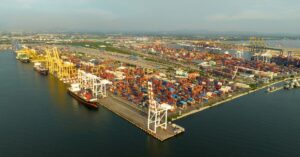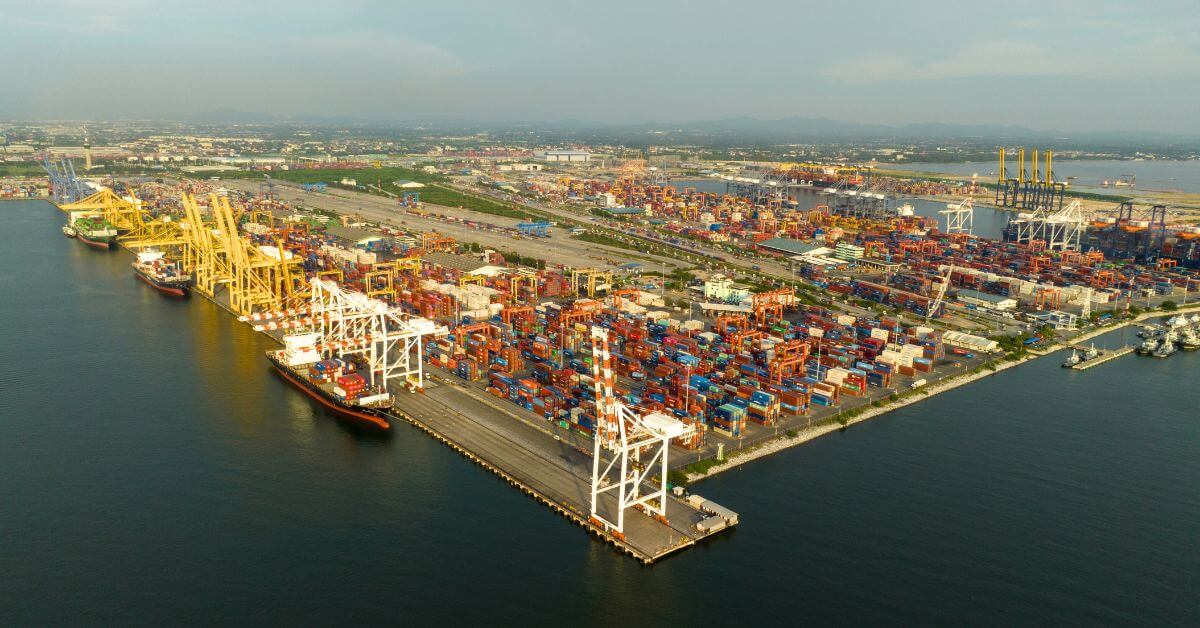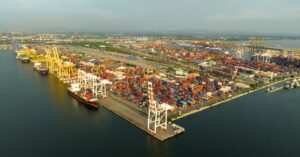
Rolls-Royce Plans To Partner With Indian Navy For Nation’s First Electric Warship
October 11, 2025
Japan To Equip Its Fleet With Type 12 Anti-Ship & Submarine-Launched Cruise Missiles
October 11, 2025

In a tit-for-tat move, China will impose port fees on vessels owned, operated, built, or flagged by U.S. entities starting Tuesday, in retaliation for planned U.S. charges on Chinese ships. The Ministry of Transport in Beijing described the fees as countermeasures in response to what it called “wrongful” U.S. practices.
Under the new rules, vessels with links to the United States will pay 400 yuan ($56) per net ton per voyage at Chinese ports. The fees will apply to a maximum of five voyages per year for each vessel and will increase annually, reaching 1,120 yuan ($157) per net ton by 2028.
The charges target ships with U.S. ownership, operations, flag, or construction, and extend to companies with 25% or more of shares or board seats held by U.S.-domiciled investment funds.
The announcement follows U.S. plans to charge Chinese-owned or operated vessels $50 per net ton for each voyage to US ports, with the fee increasing by $30 every year until 2028. Analysts said the measures could affect several shipping companies listed on U.S. stock exchanges.
Industry experts noted that North America accounts for around 5% of the global fleet by beneficial ownership. Although this is smaller than the fleets controlled by Greece, China, or Japan, it still represents a significant share of the global market.
Matson, a U.S.-based shipping company, said it would be affected by the Chinese fees but does not plan to change its service schedule. Other companies likely to be impacted include American President Lines, Zim, Maersk Line Limited, and vessels chartered by Seaspan.
Oil tanker operators listed in the United States may also face fees, even if they are based elsewhere. Analysts estimate that nearly 10% of very large crude carriers and 13% of Suezmax, Aframax, and LR2 tankers could be affected.
About 10% of the global fleet of liquefied petroleum gas (LPG) supertankers may also fall under the new charges. Chinese state-owned shipping giant COSCO, including its OOCL fleet, is expected to face costs of around $2 billion by 2026.
Beijing has criticised the U.S. port fees as “discriminatory”, saying they harm China’s shipping interests and could disrupt global supply chains. Observers note that the additional costs introduced by both countries’ measures could affect exporters, producers, and consumers at a time when international trade is already under pressure.
The United States has announced plans to raise tariffs on Chinese exports to 100% and restrict exports of critical software. In response, China has imposed curbs on rare earth exports, lithium battery technology, and related manufacturing equipment.
Trade talks between U.S. President Donald Trump and Chinese leader Xi Jinping are expected later this month at the Asia-Pacific Economic Cooperation (APEC) forum in South Korea.
China has become the world’s top shipbuilder over the past two decades, handling both commercial and military projects. In contrast, the U.S. shipbuilding industry remains small, accounting for less than 0.1% of the global market, with fewer than ten commercial vessels built last year.
Shipping analysts warn that the retaliatory port fees could increase costs and add further complexity to global maritime operations.
Reference: Reuters
Source: Maritime Shipping News


